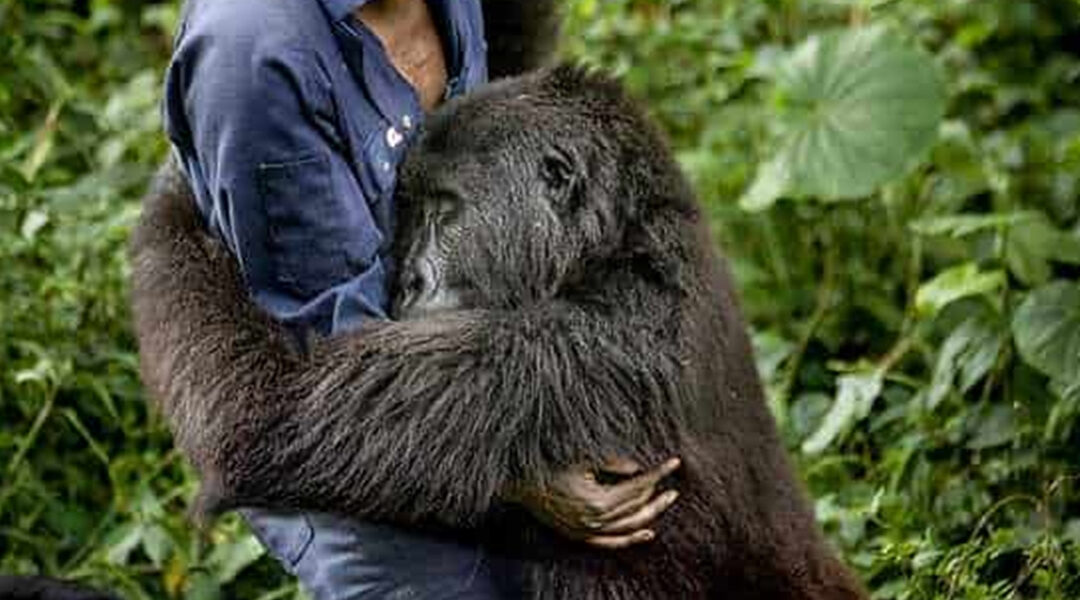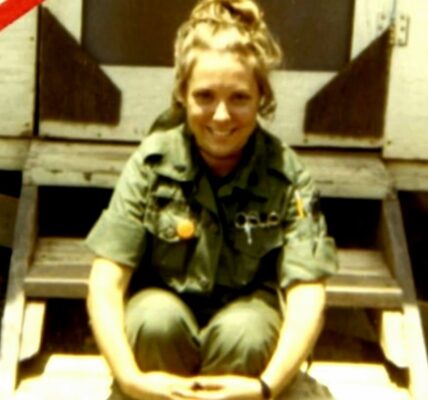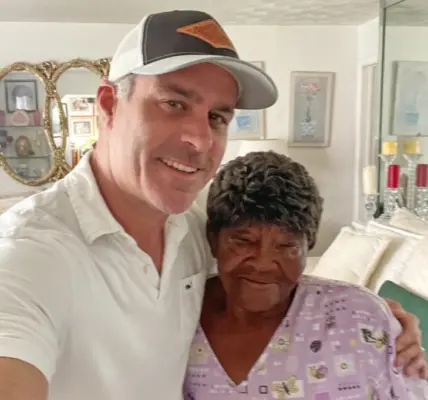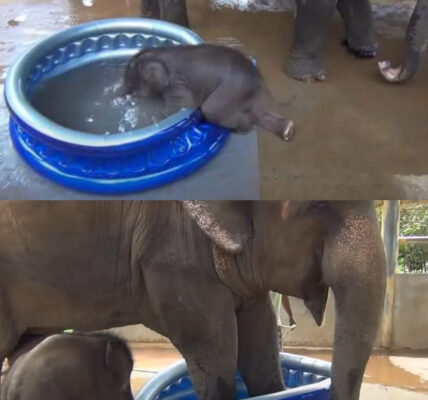In the dense, misty depths of the Congolese rainforest, where the Virunga Mountains rise like ancient guardians of the land, an extraordinary moment unfolded between a park ranger and one of the rarest creatures on Earth.
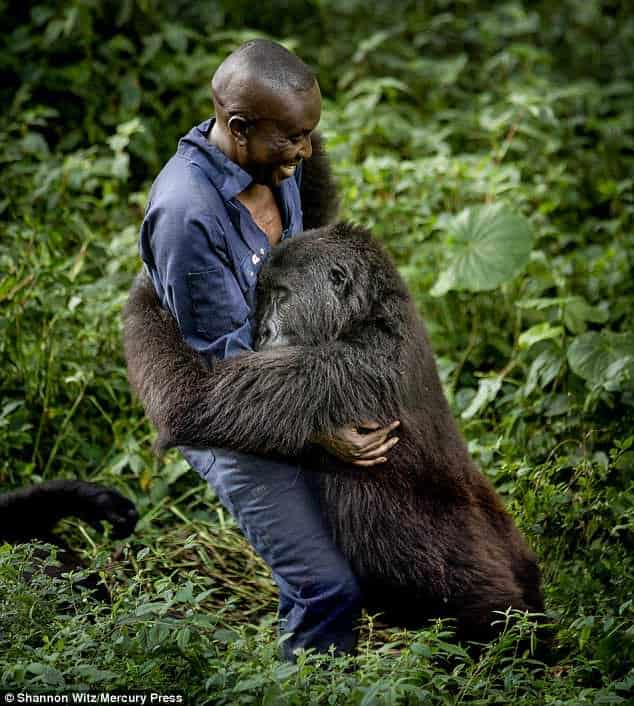
Andre, a ranger at Virunga National Park, has spent years on the frontlines of conservation—risking his life daily to protect mountain gorillas from poaching, habitat destruction, and the violence of civil conflict. His work is tireless, his dedication unshaken. Yet it is not the danger that defines his story, but the trust he has earned from the very animals he protects.
On this day, that trust was expressed in the simplest and most profound way: a hug.
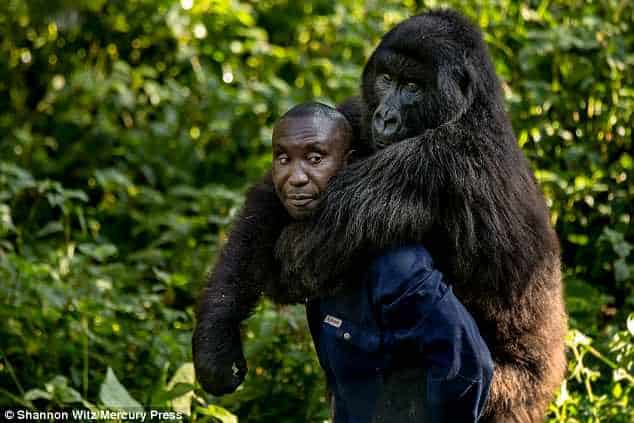
Ndazi, a young gorilla under Andre’s care, reached out with her long, gentle arms and embraced him. She held on not as an animal to a man, but as a child might cling to a parent—with affection, trust, and gratitude. In Andre’s arms, Ndazi found comfort. In hers, he found a reminder of why his work mattered.
The park ranger laughed softly as the gorilla nestled against him, her wide brown eyes filled with innocence and recognition. Later, in a scene that looked like something from a family outing, Andre even gave Ndazi a piggyback ride through the forest paths—man and gorilla moving together as if they had known each other for lifetimes.
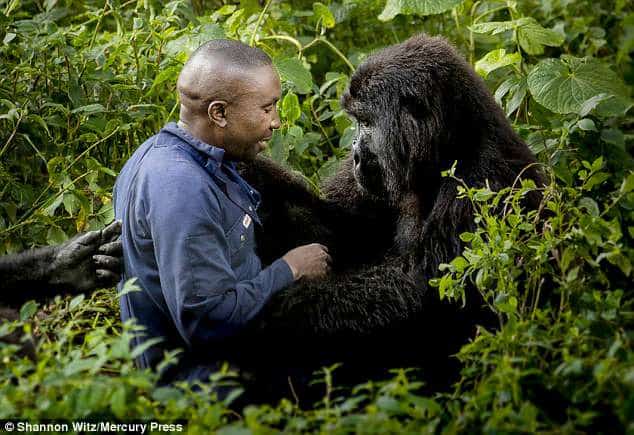
But behind the warmth of this encounter lies a sobering reality. Mountain gorillas like Ndazi are among the most endangered species on the planet. According to the World Wildlife Fund (WWF), only about 880 remain in the wild. Virunga National Park, a UNESCO World Heritage site, shelters over half of them. Here, amidst dormant volcanoes and rich rainforests, they cling to survival, thanks only to the relentless efforts of rangers like Andre.
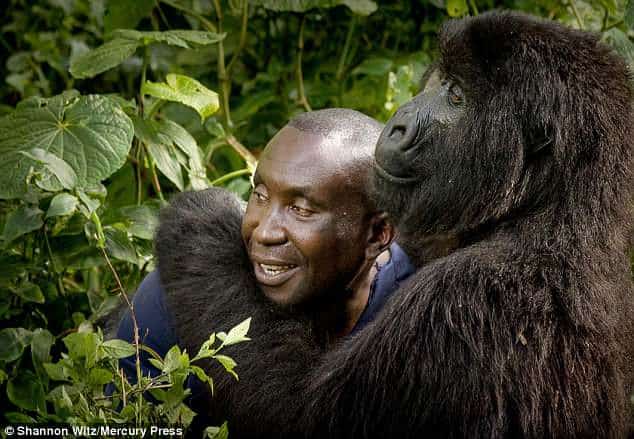
The dangers are constant. Poachers stalk the forest. Civil conflicts spill over into park territory. And now, oil companies eye the park’s land, lobbying to redraw boundaries that could open fragile ecosystems to exploitation. Conservationists fear that greed could undo decades of fragile progress.
Yet in the arms of Ndazi, those battles momentarily faded. What remained was the essence of conservation itself—not statistics, not policies, but the bond between humans and the natural world. A gorilla’s hug became a symbol of hope, a reminder that even in the face of destruction, compassion can bridge the gap between species.

Andre often says that protecting gorillas is not just about saving a species—it is about preserving a piece of our shared humanity. And as Ndazi clung to him that day in Virunga, her small heartbeat pressed against his chest, it was clear: the fight to save them is also a fight to save something tender and irreplaceable within ourselves.
For Ndazi, it was simply an embrace. For Andre, it was the most powerful thank you in the world.

